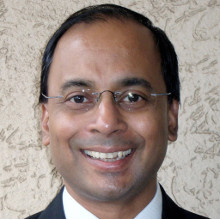[From Pixabay]
The Seen and the Unseen
The range of what we see and do
Is limited by what we fail to notice.
And because we fail to notice
That we fail to notice,
There is little we can do
To change
Until we notice
How failing to notice
Shapes our thoughts and deeds.
There is much that I fail to notice, my thoughts and deeds are indeed shaped by this fundamental limitation, as I review and reflect at the cusp of a year.
On The Shortness of Life vs Life Is Long
The stoic philosopher Seneca, in his essay ‘On the Shortness of Life’ translated by C.D.N. Costa suggests:

“It is not that we have a short time to live, but that we waste a lot of it. Life is long enough, and a sufficiently generous amount has been given to us for the highest achievements if it were all well invested. But when it is wasted in heedless luxury and spent on no good activity, we are forced at last by death’s final constraint to realize that it has passed away before we knew it was passing. So it is: we are not given a short life but we make it short, and we are not ill-supplied but wasteful of it… Life is long if you know how to use it.”
The question then is, how do we make use of the time we have, to have a long enough life?
Tim Urban has a valuable framework that he details in his 2015 essay ‘The Tail End’ which is about the time we have, and what really matters, something the pandemic has underscored.
When we map our current position in his weeks chart, it is apparent how many weeks we have left, to then ask—what matters most to us, and how to best use the time we have?
Assuming a lifespan of 80, I have about 1,109 weeks left, of the total of 4,175 weeks in all granted me. In months, this translates into 255 months that I might have left. Plenty, if I know how to use it meaningfully.
Fulfilment Over Happiness
Popular culture would have us believe that the pursuit of happiness is our central goal, that we could find happiness through acquisition of certain lifestyles, material possessions and more. We constantly wish people happiness on special occasions—Happy Birthday, Happy New Year…
Happiness is fleeting, fulfilment is lasting. Fulfilment is underrated and seldom prioritised as it implies sustained effort over pleasure. The question to ask ourselves is how fulfilled we are. What would enable fulfilment? What then could I do today, this year?
Will to Meaning
Thinkers over the years have proposed various motives for human purpose. Freud believed in the “will to pleasure”, while Adler believed in the “will to power” as the force that drives human actions.
But Victor Fankl believed that the “will to meaning” provides the central purpose to human life.
Two key insights from his seminal book Man’s Search for Meaning are:
“Between stimulus and response, there is a space.
In that space lies our freedom and our power to choose our response.
In our response lies our growth and our happiness.”
"…success, like happiness, cannot be pursued; it must ensue, and it only does so as the unintended side-effect of one’s personal dedication to a cause greater than oneself...”
In his book Prisoners of Our Thoughts Dr. Alex Pattakos explores seven core principles derived from Viktor Frankl’s body of work:
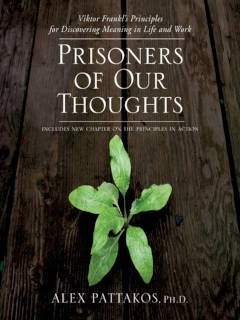
1. We are free to choose our attitude toward everything that happens to us.
2. We can realise our will to meaning by making a conscious, authentic commitment to meaningful values and goals.
3. We can find meaning in all of life’s moments.
4. We can learn to see how we work against ourselves and can learn to avoid thwarting our intentions.
5. We can look at ourselves from a distance to gain insight and perspective as well as to laugh at ourselves.
6. We can shift our focus of attention when we are coping with difficult situations.
7. We can reach out beyond ourselves and make a difference in the world.
Dr Pattakos affirms that ‘all lives have meaning’, that all of us can bring meaning to our work, no matter what it is, and when we do this, our work becomes meaningful.
30 Questions for True North
I believe that our lives are defined by the questions we ask and the value we assign them.
HBS professor and former CEO Bill George offers 30 Questions to help you discover your true north. Here are some of them:
What do you think is the meaning of life? Do you live your life accordingly?
When was the last time you embarrassed yourself? You have to be vulnerable to find your purpose.
What do you want your legacy to be? 10, 20, 50 years from now, what will your name mean?
Now that you’ve answered these questions, what is your action plan? What steps will you take today?
Life Review
Executive coach Steve Schlafman offers a free actionable blueprint to conduct a self-paced annual life review to ‘help gain perspective on what you learned, what you want to achieve, and who you want to become.’
Here is his article on How to Conduct an Annual Life Review that Will Catapult You into the New Year
Wabi Sabi
Our ubiquitous mobile phones with algorithmic social media apps have turned many of us into “comparison addicts and validation junkies” with improbable, unrealistic standards and expectations of beauty, lifestyle, experiences, relationships…
The Japanese concept of Wabi Sabi is a world view centred on the acceptance of transience and imperfection. Author Beth Kempton defines it as “an acceptance and appreciation of the impermanent, imperfect and incomplete nature of everything”; it is particularly relevant today.
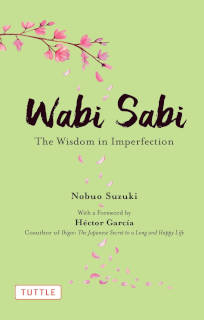
The book Wabi Sabi: The Wisdom in Imperfection by Nobuo Suzuki has been one of our gift books this year that has been particularly welcomed. The beautifully designed book details the relevance of Wabi Sabi as an antidote to our frenetic consumption-driven, materialistic world, and explores how to appreciate what we have, where we are, and what really matters.
The Power of Mimetic Desire
French polymath Rene Girard developed the theory of “mimetic desire”—‘the idea that most human wanting comes from imitating the desires of others.’
‘The consequences of mimetic desire are evident all around us. Because people learn to want what other people want, they are easily drawn into rivalries and conflict. But mimetic desire does not have to be in control. We are free to choose. And those who understand mimetic desire have a tremendous advantage over those who don’t.’
Entrepreneur and educator Luke Burgis in his book Wanting explores why we want what we want, and shares a toolkit for freeing ourselves from chasing unfulfilling desires.
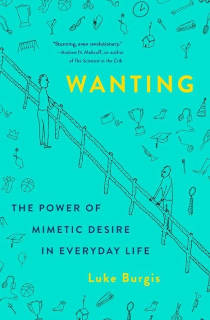
If you would prefer to listen instead of read, you can tune into this conversation with Shane Parrish for his podcast The Knowledge Project, in which Burgis shares why all of our behaviours are imitative, why we desire things we don’t need, and why this all leads to missing out on aspects of life that are far more meaningful and valuable.
Antifragility
Our world is increasingly characterised by volatility, uncertainty, complexity and ambiguity (VUCA in short). Is it possible to thrive in such an environment?
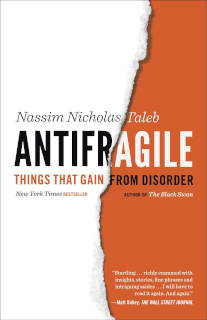
Yes, affirms Nassim Nicholas Taleb. His book Antifragile: Things that Gain from Disorder introduces the concept of antifragility:
“Some things benefit from shocks; they thrive and grow when exposed to volatility, randomness, disorder, and stressors and love adventure, risk, and uncertainty. Yet, in spite of the ubiquity of the phenomenon, there is no word for the exact opposite of fragile. Let us call it antifragile.
Antifragility is beyond resilience or robustness. The resilient resists shocks and stays the same; the antifragile gets better.
This property is behind everything that has changed with time: evolution, culture, ideas, revolutions, political systems, technological innovation, cultural and economic success, corporate survival, good recipes, the rise of cities, cultures, legal systems, equatorial forests, bacterial resistance … even our own existence as a species on this planet.”
I recently met two entrepreneurs, one in Kottayam and the other in Pune, whose traditional food businesses exhibit antifragility—both have become far stronger post the pandemic.
Consider how the human body responds to strength training—as we apply repetitive and increasing stress, our muscles become bigger and stronger.
Taleb states that: “By grasping the mechanisms of antifragility we can build a systematic and broad guide to nonpredictive decision making under uncertainty in business, politics, medicine, and life in general—anywhere the unknown preponderates, any situation in which there is randomness, unpredictability, opacity, or incomplete understanding of things.
In every domain or area of application, we propose rules for moving from the fragile toward the antifragile, through reduction of fragility or harnessing antifragility. And we can almost always detect antifragility (and fragility) using a simple test of asymmetry: anything that has more upside than downside from random events (or certain shocks) is antifragile; the reverse is fragile.
Crucially, if antifragility is the property of all those natural (and complex) systems that have survived, depriving these systems of volatility, randomness, and stressors will harm them. They will weaken, die, or blow up. We have been fragilizing the economy, our health, political life, education, almost everything … by suppressing randomness and volatility. … stressors.
Much of our modern, structured, world has been harming us with top-down policies and contraptions which do precisely this: an insult to the antifragility of systems. This is the tragedy of modernity: as with neurotically overprotective parents, those trying to help are often hurting us the most.”
Russian Invasion of Ukraine
What Harvard Kennedy School faculty members and other experts are saying about the Russia-Ukraine war: From geopolitics to sanctions to the role of misinformation and cyberattacks, HKS scholars analyse the Russian invasion of Ukraine and what it means for the world: Russia-Ukraine War: Insights and Analysis
The Book of Dog

“Dogs come into our lives to teach us about love. They depart to teach us about loss.” - Erica Jong
Hemali Sodhi’s The Book of Dog celebrates the special relationship between humans and dogs through 45 poignant, joyous, funny real-life stories that shine with love. A project to which the editor and all the authors have contributed for free, with royalties going to registered animal welfare charities. It has been another of our gift books this year.
“…dogs teach you some of the most profound lessons of life. They teach you to live in the moment, to live for the moment. They teach you unconditional love, given so freely that it sometimes makes you tear up and wonder what you did to deserve this. They teach you to love unreservedly and never let the child die in you. And they teach you kindness.” - Hemali Sodhi
Womanising in India
‘Half the world's population—men—have virtually no idea what the everyday life of the other half is like. Even the most progressive of men out there would be shocked if they had to walk a mile in women’s shoes.’

Mahima Vashisht launched her insightful, astute and witty newsletter Womanising in India to chronicle and share women’s stories and the world they inhabit that is designed by men for men. Stories of real women of India, highlighting real gender-blind spots of Indians and accompanied by telling gifs.
Here are links to three of them: The Raja Beta Syndrome, Men, Women, and the Mental Load of Running a House Together, Lessons from the Tarun Tejpal Judgment.
I was introduced to Mahima Vashisht by Amit Varma though his episode #293 Womaning in India With Mahima Vashisht that is a must-listen. If you don’t subscribe to his fabulous podcast The Seen and Unseen, please do so right away.
Life Stages Of The Brain
In each stage of life, our brains morph and change. In this NPR podcast, TED speakers explore pivotal chapters where the brain can either flourish or decline—and what control we might have over brain health. Guests include neuroscientists Kimberly Noble, Adriana Galvan, Sandrine Thuret, and Lisa Mosconi.
How does income affect childhood brain development? (TED Talk)
Neuroscientist and paediatrician Kimberly Noble is leading the Baby's First Years study: the first-ever randomised study of how family income changes children’s cognitive, emotional and brain development. She and a team of economists and policy experts are working together to find out: Can we help kids in poverty simply by giving families more money? “The brain is not destiny,” Noble says. “And if a child’s brain can be changed, then anything is possible.”
Health and Wellness
Can a person be “cured” of Type 2 Diabetes? Dr. Sarah Hallberg provides compelling evidence that it can, and the solution is simpler than you might think. In this TEDx Talk she covers insulin resistance, Type 2 diabetes, the negative impact of a low carb low fat diet, and shares the following 5 rules for insulin resistant people:
If it says fat free or low fat, don't buy it!
Eat real food. Real food doesn't come in a box.
Don’t eat what you don’t like.
Eat when you’re hungry, stop when you’re full.
No GPS—Grains, Potatoes, Sugar
(Reversing Type 2 diabetes starts with ignoring the guidelines | Dr Sarah Hallberg)
How to Make Stress Your Friend
“It’s not stress that kills us, it is our reaction to it” - Hans Selye
Health psychologist Kelly McGonigal says that changing how we think about stress can make us healthier, that stress may only be bad for us if we believe that to be the case. In her TED Talk (shared below), she urges us to see stress as a positive, and introduces us to an unsung mechanism for stress reduction: reaching out to others.
Her book The Upside of Stress: Why Stress is Good for You and How to get Good at It details how we could change our mind about stress, how to transform it to make it work for us.
Reframing Your Reality
We often assume that we see ourselves and the world around us accurately. But psychologist Alia Crum says that our perceptions are always filtered through our mindsets—and these mindsets shape our lives in subtle but profound ways.
In this first of two episodes, Alia explains how mindsets affect our response to stress.
In this second episode, Alia explains how our beliefs about food and exercise affect our bodies.
The Hidden Brain is among my favourite podcasts, one that I would highly recommend.
Being Mortal
I am at the stage in life when my family and friends are losing their parents and elders one by one. My father (who is 88, and thankfully able to continue to live his life independently with my mother, who is 81) has asked me and my siblings not to prolong his life through invasive and aggressive treatments when the time comes. He doesn’t want to be taken to hospitals, and wants to depart with dignity.
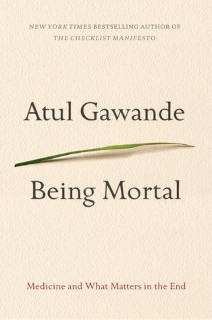
In his book Being Mortal: Medicine and What Matters in the End, Dr Atul Gawande writes:
“We’ve been wrong about what our job is in medicine. We think our job is to ensure health and survival. But really it is larger than that. It is to enable well-being. And well-being is about the reasons one wishes to be alive. Those reasons matter not just at the end of life, or when debility comes, but all along the way. Whenever serious sickness or injury strikes and your body or mind breaks down, the vital questions are the same: What is your understanding of the situation and its potential outcomes? What are your fears and what are your hopes? What are the trade-offs you are willing to make and not willing to make? And what is the course of action that best serves this understanding?”
Dr Gawande offers examples of freer, more socially fulfilling models for assisting the infirm and dependent elderly, and he explores the varieties of hospice care to demonstrate that a person’s last weeks or months may be rich and dignified.
End-Of-Life Doulas
Rachel Friedman, author of And Then We Grew Up: On Creativity, Potential and other books, trained as an end-of-life doula and offers the following advice on how to make the most of our time on earth.
“End-of-life (EOL) doulas are at the opposite end of the life cycle spectrum from birth doulas. They provide non-clinical care (emotional, logistical, and physical) and help with planning; engage with life reviews and legacy work; and provide support for family and friends so caretakers can bring their best, rested selves to support their dying loved one.”
Dr. Sarah Hallberg: A Personal Journey Through Cancer
Sarah’s cancer diagnosis and the beginning of her journey [1:15:15];
The emotional impact of a devastating diagnosis [1:27:15];
Sarah’s plan to extend survival [1:36:45];
Sarah’s aggressive treatment plan [1:47:30];
Life-threatening complications and the return of her cancer [1:59:00];
Sarah’s reflections on her approach to life with chronic cancer and balancing her time.
The Maintenance Race
The Maintenance Race is Stewart Brand’s fascinating account of the Golden Globe around-the-world solo sailboat race of 1968—a thrilling and, for some, a deadly contest.

Its drama continues to echo half a century later because three of the nine competitors became legendary—the one who won, the one who didn’t bother to win, and the one who cheated.
Their stories are usually told as a contest of wills and endurance, but at heart, it was a contest of maintenance styles. It helps us understand just how fundamental maintenance is, and holds many lessons for organisations especially startups, and for leaders everywhere.
Freediving’s Alenka Artnik: Record Depths on Just One Breath
Sunken by grief, Alenka Artnik found herself alone on a bridge, contemplating suicide. Ten years later, she is the world’s greatest female freediver and getting stronger with each record-breaking plunge.
How one woman emerged from mental health struggles to push the limits of the human body—do read this amazing story by Xan Rice with fabulous photos and videos by Daan Verhoeven.
Birding
The pandemic has given rise to a significant upsurge in birding and birders, with numerous groups of birdwatchers getting together for weekend outings around the country, connecting and coordinating over WhatsApp.
Merlin Bird ID from The Cornell Lab is a free app that is indispensable for birdwatchers for help in identifying birds in an area, learn about their behaviour and habitat, identify their calls and even identify them from photos.
eBird, also from The Cornell Lab, enables birders to easily collate and share their bird sightings in the form of checklists of birds. The crowdsourced checklists enable Cornell Lab to track bird activities in realtime around the world, and power new data-driven approaches to science, conservation and education.

Birding with Yeats by Lynn Thomson is an evocative memoir about motherhood, family, growing-up and the beauty of the natural world. Lynn and her teenage son Yeats discover a mutual love of nature and birdwatching, which is at the heart of the book. Lynn describes in wondrous detail the many trips she and Yeats take around Canada, including a trip to Galapagos.
I have quoted Lynn Thomson previously:
“I think the most important quality in a birdwatcher is a willingness to stand quietly and see what comes. Our everyday lives obscure a truth about existence—that at the heart of everything there lies a stillness and a light.”
The Contrarian
“To make progress in life, be sceptical, question everything, including whatever I say.” - Sridhar Vembhu
Don’t miss this richly-detailed, nuanced and insightful story by NS Ramnath about Zoho founder Sridhar Vembu, who has been building the institution that is Zoho by questioning conventional wisdom and leading uniquely.
Climate Change
10 Must-Read Books to Understand Climate Change and How You Can Make a Difference
Failure as Opportunity
Dalit civil rights activist Thenmozhi Soundararajan on why failure is an opportunity to build power, how systems of oppression affect well-being, and what healing looks like for individuals and communities.
Sometimes
Sometimes things don’t go, after all,
from bad to worse. Some years, muscadel
faces down frost; green thrives; the crops don’t fail.
Sometimes a man aims high, and all goes well.
A people sometimes will step back from war,
elect an honest man, decide they care
enough, that they can’t leave some stranger poor.
Some men become what they were born for.
Sometimes our best intentions do not go
amiss; sometimes we do as we meant to.
The sun will sometimes melt a field of sorrow
that seemed hard frozen; may it happen for you.
Here’s the poet’s note on the poem, with the request to leave the name off.
I will sign-off with a request: do consider supporting any or both of these nonprofits I serve: Society for Nutrition, Education and Health Action, and Pratham Books. Here are their annual reports: SNEHA, Pratham Books.

